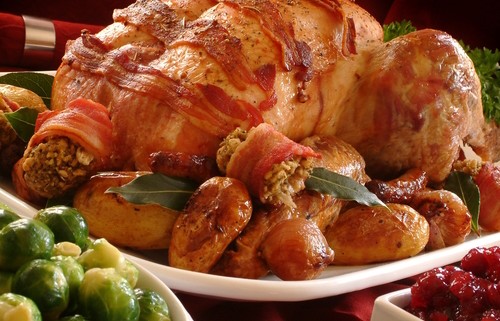Seven Safety Tips for Defrosting Your Turkey this Christmas
How To Safely Defrost A Turkey
The build-up to the festive period has begun once more, and with it comes the prospect of lots of good food, family fun, and social gatherings with friends.
Christmas is definitely one of the most wonderful times of the year – so don’t ruin it by giving your guests or yourself food poisoning! Cases of food poisoning tend to significantly rise over the festive period. During this period it is more likely you will be cooking for several generations of people, many of whom would fall into the ‘risk group’ of people who are more susceptible to food poisoning and more likely to die as a result. We must be particularly careful when preparing food for young children, pregnant women, the elderly, and all those people who are immunocompromised.
For the majority of us, turkey will feature heavily on our Christmas menu; but improper or inadequate defrosting of frozen poultry provides a way for pathogenic bacteria to spread, leaving you with a turkey dinner that may look and taste delightful, but containing an invisible risk that can’t be detected by your senses.
There is nothing wrong in using frozen turkey, however, if you are, then it’s essential that you follow these 7 safety guidelines:
- Always purchase your turkey from a reputable retailer or supplier.
- Always follow the specific defrosting instructions on the label.
- Never wash your turkey, either when still frozen or when defrosted, as this can spread harmful bacteria around your kitchen by splashing!
- Always plan ahead! When defrosting raw turkey it is always best to thaw in the refrigerator at least 24 hours before it is to be cooked. It’s worth noting that large turkeys (around 25lbs) can take up to 48 hours to defrost. During thawing, ensure that the turkey is covered and placed in a deep container in the bottom of the refrigerator completely separated from other food, particularly ready to eat food. This will prevent blood or juices dripping down onto other food stored in the same fridge. If you don’t have the fridge space to defrost, then find some other very cool but hygienic place. Remember: Cold temperatures slow down the multiplication of pathogens on food.
- Always make sure that your turkey is defrosted thoroughly prior to cooking. If not, it will probably lead to uneven cooking which in turn will cause harmful bacteria to survive the cooking process.
- Once defrosted, keep the turkey stored in the bottom of your fridge until it is ready to cook. Leaving in the kitchen at room temperature may significantly increase the risk of food poisoning!
- You must always wash your hands thoroughly both before and immediately after handling the turkey, ensuring that all surfaces that have come into contact with the raw meat are thoroughly cleaned using a propriety sanitizer.
In recent years, goose has made a comeback on the Christmas menu. If you are using goose instead of turkey this Christmas, the above rules would still apply.
Merry Christmas!



